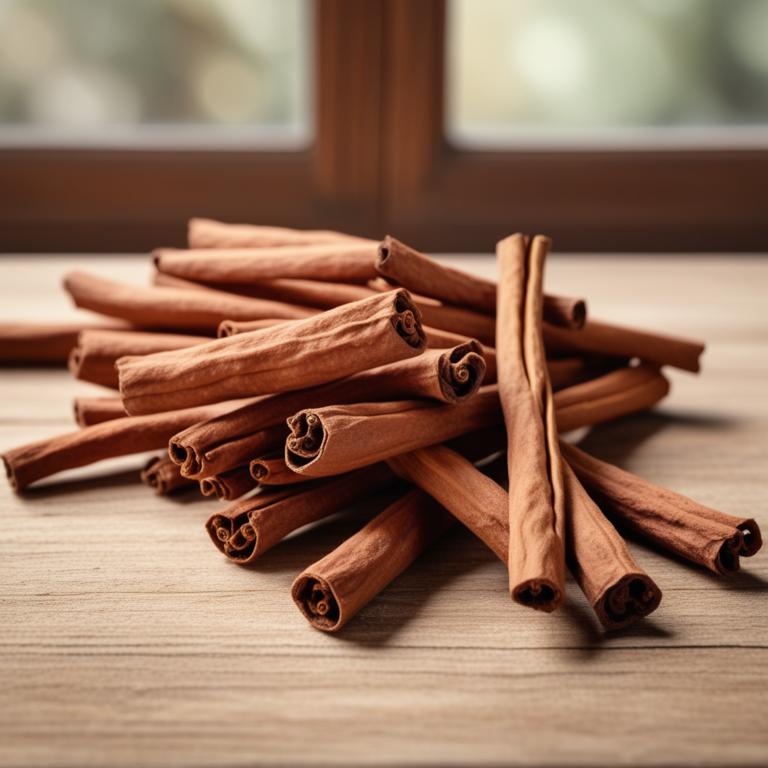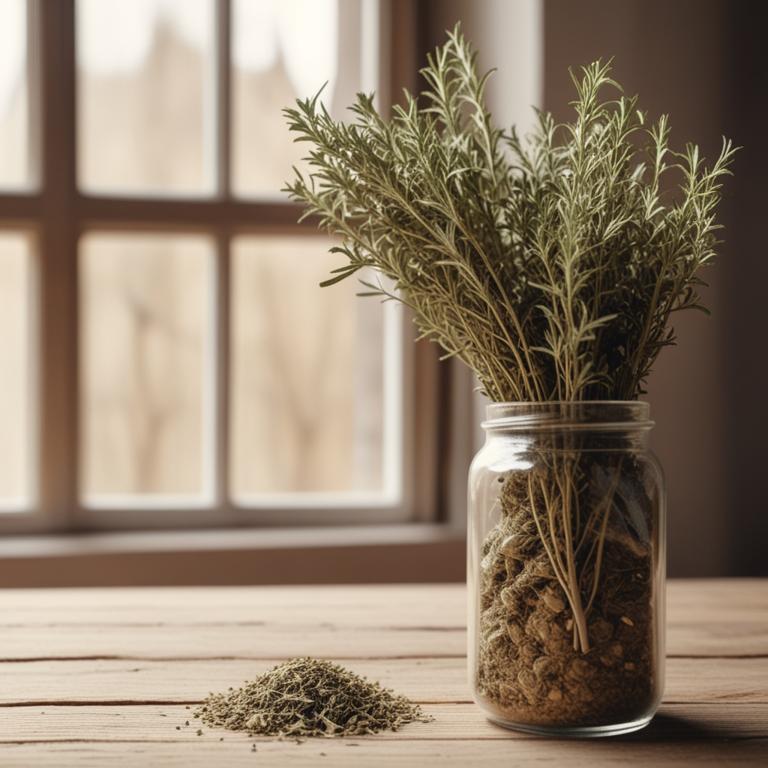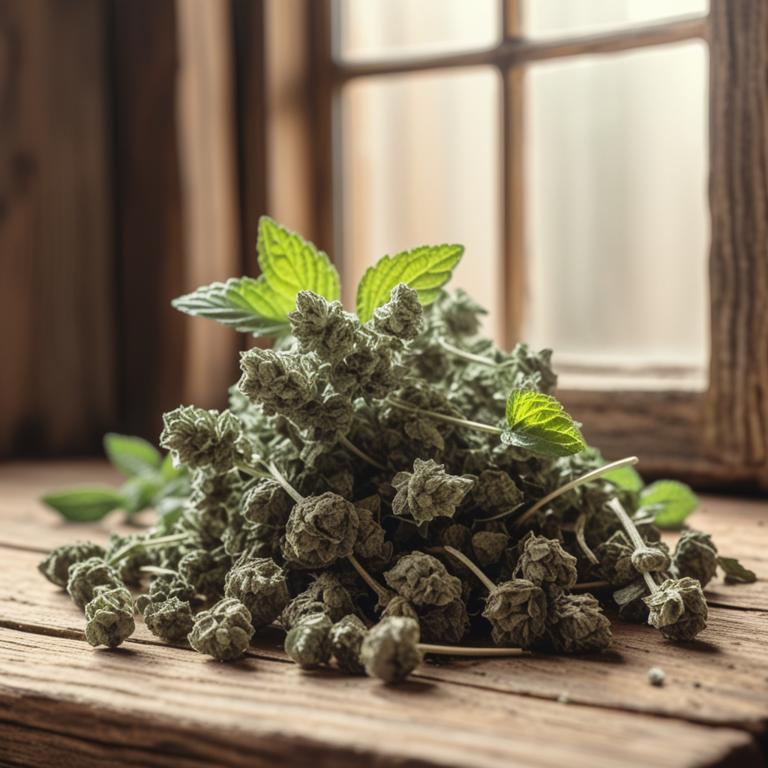Updated: Dec 1, 2024
Hangover: The Science Behind the Causes and Medicinal Herbal Preparations
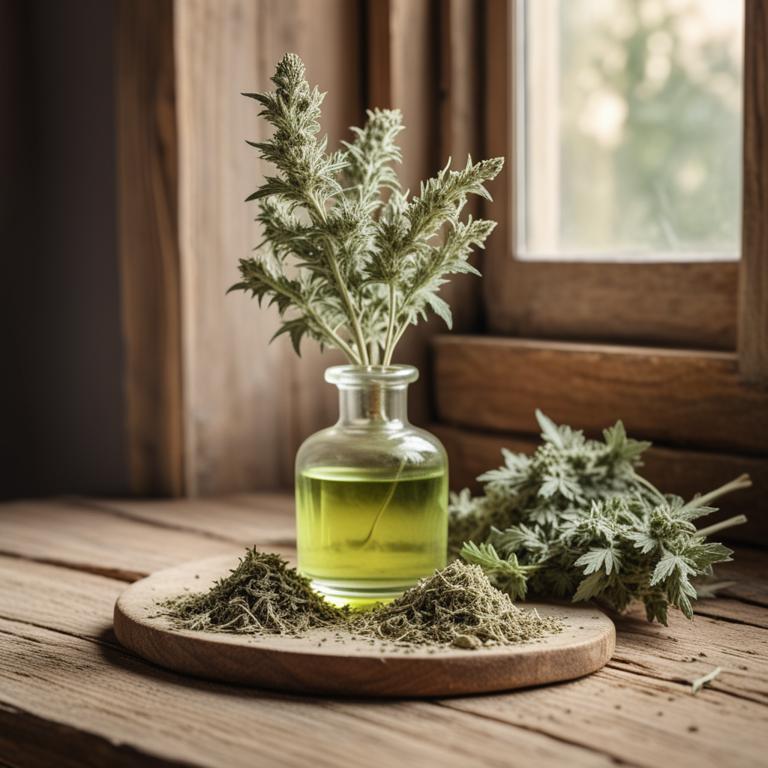
A hangover is a feeling of sickness and discomfort after drinking too much alcohol.
It can make you feel tired, thirsty, and nauseous, and can even cause headaches and dizziness. This can be a real problem, especially if you have to be at work or school the next day. So, what causes a hangover?. It's mainly because your body is trying to get rid of the toxic effects of alcohol, which can lead to dehydration and inflammation. Herbal remedies can help alleviate hangover symptoms. One of the most effective herbs for hangover is peppermint, which can calm your stomach and reduce nausea.
Ginger is another great herb, as it can help with digestion and reduce inflammation. Willow bark, which contains salicylic acid, can also help with pain relief. These herbs can be made into teas, which are easy to drink and can help soothe your stomach. You can also try infusing the herbs in water or making a warm infusion to drink before bed. Some people also use herbal supplements, like prickly ash and dandelion root, to help replenish lost nutrients and electrolytes. These can be found in capsule or tablet form.
By using these herbal remedies, you can reduce the severity of your hangover and feel better faster.
Table of Contents
What are the causes of developing a hangover?
The main causes of hangover are a combination of several factors that occur after consuming too much alcohol.
One of the main reasons is dehydration - when you drink, your body loses water faster than it can process it, leading to a lack of fluids in your system. This makes you feel weak, dizzy, and can even cause headaches. Another major contributor is acetaldehyde, a toxic compound produced when your body breaks down alcohol. It's responsible for the nasty hangover symptoms like nausea and vomiting. Acetaldehyde builds up in your body and can cause a lot of damage. When you drink excessively, your body also loses essential electrolytes like sodium and potassium, leading to an imbalance.
Electrolytes help regulate the balance of fluids in your body, so when they're out of balance, it can cause muscle cramps, fatigue, and other symptoms. Another factor is the release of cytokines, which are like chemical messengers in your body. When you drink too much, your body releases cytokines to fight off the toxins from alcohol. However, this release can cause inflammation and make your hangover symptoms even worse. Lastly, inflammation plays a significant role in hangover symptoms. When your body detects the presence of toxins from alcohol, it responds with inflammation, which can cause pain, swelling, and other symptoms.
The combination of these factors is what makes hangovers so unbearable.
What are the benefits of utilizing herbs to combat hangover symptoms?
Using herbs to help with hangovers can be a great idea.
These natural remedies can help reduce the symptoms and make you feel better faster. One of the main benefits is that they can help alleviate headaches and nausea, which are usually the worst parts of a hangover.
Some herbs have anti-inflammatory properties, which can help ease the pain and discomfort in your head and body. Others can help replenish fluids and electrolytes, reducing dehydration and its effects. Some herbs also have a calming effect, which can help with anxiety and irritability, making it easier to relax and recover.
By using herbs, you can avoid harsh chemicals and artificial ingredients found in some over-the-counter medications, and get back to your daily routine sooner.
What are the main medicinal herbs for hangover cure?

When it comes to hangovers, herbs can be a great natural remedy to help alleviate symptoms.
One herb that's commonly used is ginger (Zingiber officinale), which is known for its anti-inflammatory properties and ability to soothe the stomach. Ginger helps to calm nausea and stomach upset, making it a popular choice for people who've had a bit too much to drink. Ginkgo biloba is another herb that can help with hangovers. Its leaves contain flavonoids, which can help to improve blood flow and reduce inflammation. This can be especially helpful when you're feeling drained and sluggish after a night out. Ginkgo biloba also has antioxidant properties, which can help to protect your cells from damage caused by free radicals. Panax ginseng, also known as Asian ginseng, is a popular herb that's often used to boost energy and vitality.
When you're feeling hungover, it can be hard to muster the energy to do much of anything. Ginseng helps to increase your energy levels and reduce fatigue, making it a great choice for people who need a pick-me-up after a long night. Cinchona officinalis is another herb that's commonly used to treat hangover symptoms. It contains quinine, a compound that helps to reduce inflammation and alleviate nausea. Quinine has been used for centuries to treat malaria, but it's also effective in reducing the symptoms of a hangover. Finally, Valeriana officinalis, also known as valerian root, is a natural sedative that can help to calm your nerves and promote relaxation. When you're feeling hungover, it's easy to get worked up and anxious, but valerian root helps to soothe your mind and body. It's also known for its ability to improve sleep quality, which is essential for recovering from a hangover.
These herbs can be consumed in various forms, such as teas, capsules, or tinctures, and can be used individually or in combination to alleviate hangover symptoms.
Which herbal preparations are effective for treating hangover?

If you're feeling terrible after a night out, herbal preparations can be a great way to help ease your hangover symptoms.
One of the best ways to use herbs for hangovers is through a tincture. Tinctures are liquid extracts that contain the active ingredients of the herbs, and they can be taken quickly to help alleviate headaches and nausea. Ginger tincture, for example, has anti-inflammatory properties that can help reduce pain and soothe your stomach. Another option is a decoction, which is a type of liquid herbal preparation made by simmering herbs in water. Decoctions are often more intense than tinctures, so they can be more effective for severe hangover symptoms. Peppermint decoction, for instance, can help calm your stomach and reduce nausea. If you're not feeling up to taking a tincture or decoction, you can also try drinking herbal tea.
Tea is a gentle way to introduce herbs into your system, and it can be soothing and comforting when you're feeling ill. Chamomile tea, for example, can help calm your mind and body, making it easier to rest and recover. Infusions are similar to teas, but they often involve steeping herbs in hot water for a shorter amount of time. Infusions can be a good option if you're not sure which herbs to use or how strong to make them. Lemon balm infusion, for example, can help reduce anxiety and promote relaxation. Finally, if you prefer to take your herbs in a more modern way, you can try herbal gummies. Gummies are easy to take on the go and can be a fun and convenient way to get the benefits of herbs without having to drink a tea or take a tincture. Ginger gummies, for instance, can help reduce nausea and alleviate pain.
These herbal preparations can be a great way to help alleviate hangover symptoms, and they can be more natural and gentle on your body than over-the-counter medications.
Additional Resources:
Which herbs should be avoided when experiencing a hangover?
If you're feeling miserable from a hangover, it's best to steer clear of certain herbs that can make things worse.
Piper methysticum, also known as kava, can actually increase the symptoms of a hangover, making you feel more anxious, jittery, and nauseous. Coffea arabica, or Arabica coffee, might seem like a good idea to help perk you up, but it can actually exacerbate dehydration and make your headaches worse.
Ephedra sinica, a plant that contains ephedrine, can speed up your heart rate and worsen the anxiety that often comes with a hangover. Rauvolfia serpentina, also known as Indian snakeroot, is a natural sedative, but it can interact with other medications you might be taking to help with your hangover, and cause serious side effects.
Theobroma cacao, or cacao, contains caffeine and theobromine, which can increase your heart rate and blood pressure, making your hangover symptoms even more unbearable.
FAQ
Are there any specific herbs that can prevent hangover?
Some herbs like ginger and peppermint may help ease hangover symptoms.
Ginger can calm your stomach, while peppermint can soothe your head and body. These herbs are often used in teas and infusions to help alleviate hangover discomfort.
They can be consumed before or after drinking to see if they make a difference.
Is it safe to use herbal remedies for hangover during pregnancy?
It's not recommended to use herbal remedies for hangover during pregnancy.
Many herbs can be unsafe, especially in large amounts, and may affect the developing baby. Some herbs can cause bleeding, stimulate the uterus, or interact with other medications.
It's best to stick to water and rest to help with hangover symptoms.
Are there any herbs that can reduce the frequency of hangover?
Some herbs like peppermint, ginger, and ginseng might help reduce hangover symptoms.
Peppermint can calm the stomach, while ginger can ease nausea and ginger's anti-inflammatory properties may help with headaches.
Ginseng is believed to help your body recover from the effects of alcohol.
Can i combine different herbal remedies for hangover?
You can combine different herbal remedies for hangover, but be cautious.
Some herbs might interact or worsen symptoms. For example, mixing ginger and peppermint can help with nausea and stomach upset.
However, if you're taking milk thistle for liver support, it might not mix well with other herbs.
Related Articles

Causes and Natural Remedies for Stress Management
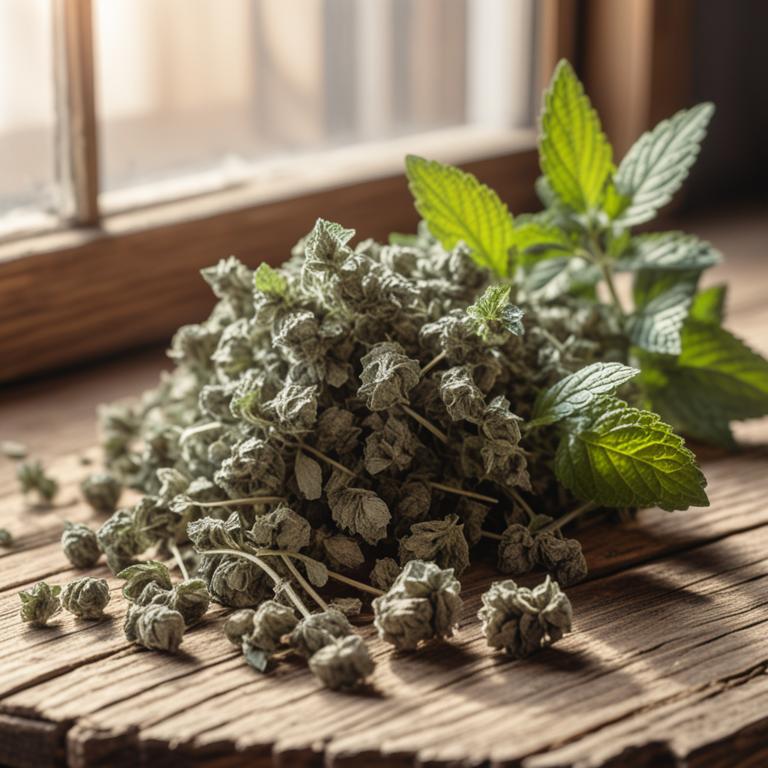
Understanding Headaches: Causes, Herbal Remedies, and Natural Preparations
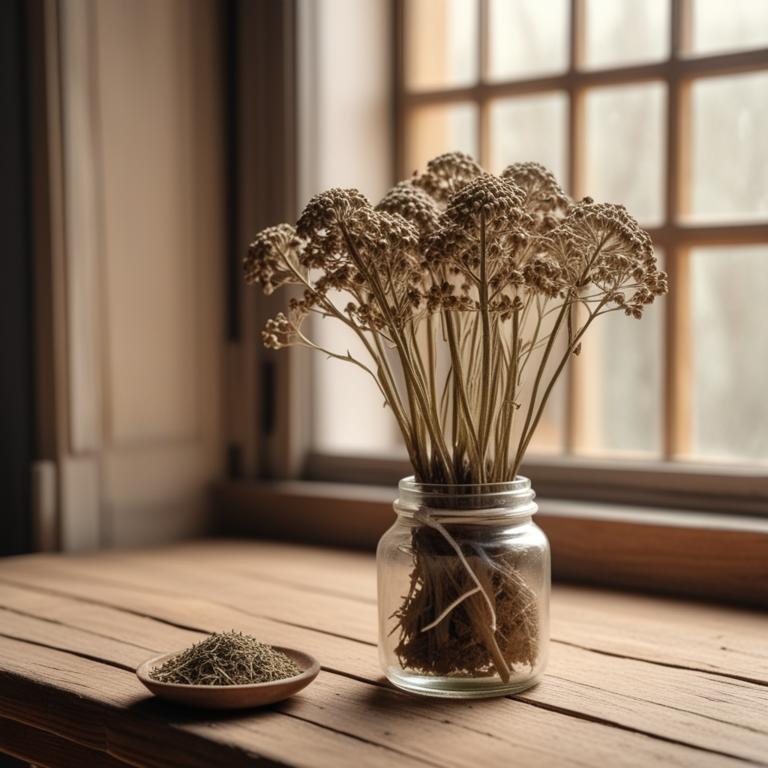
Breaking Down Depression: Causes, Symptoms, and Herbal Remedies
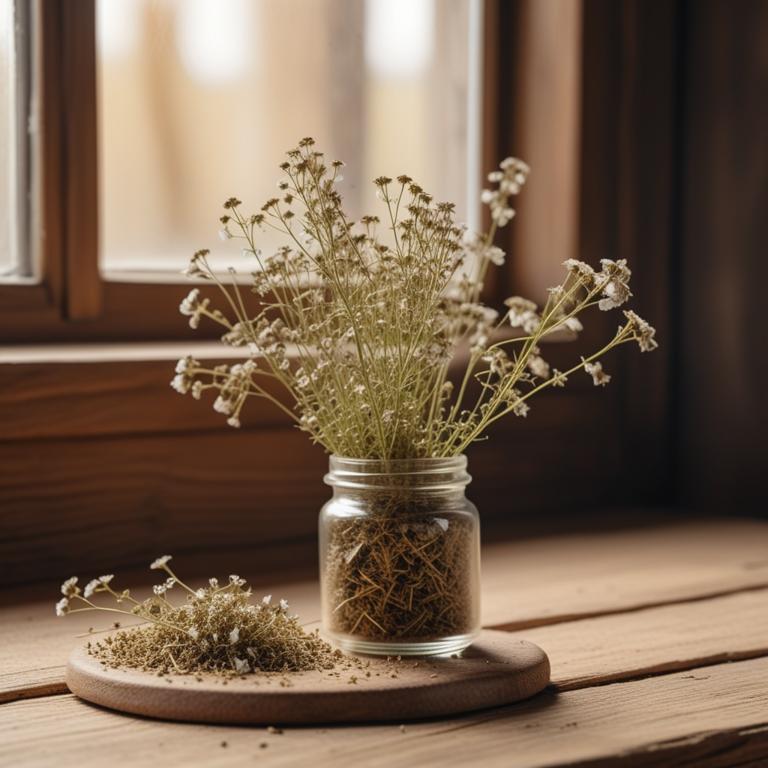
Sore Eyes Treatment with Medicinal Herbs and Herbal Preparations
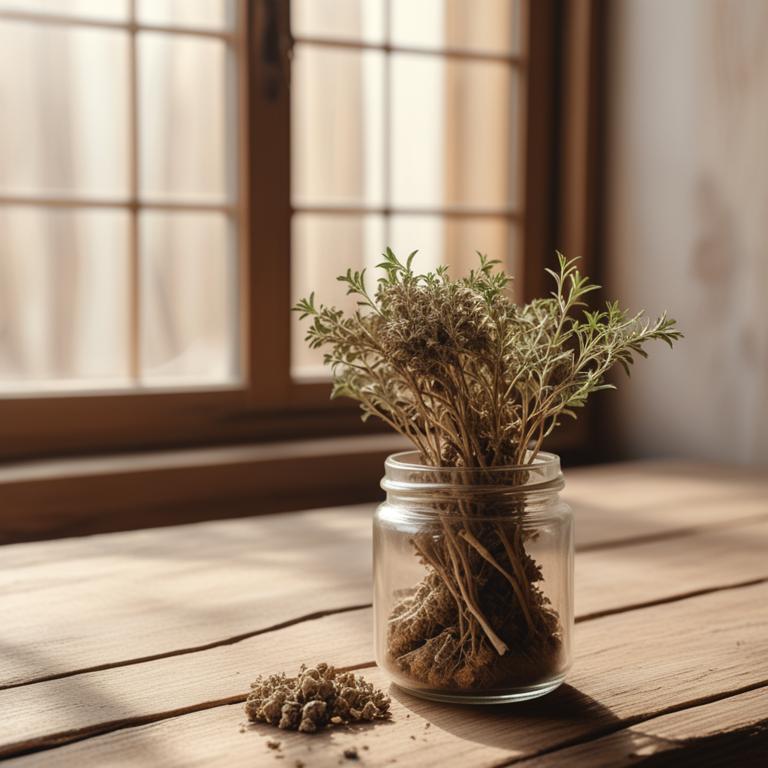
Managing Difficult Speaking: Medicinal Herbs and Herbal Remedies




